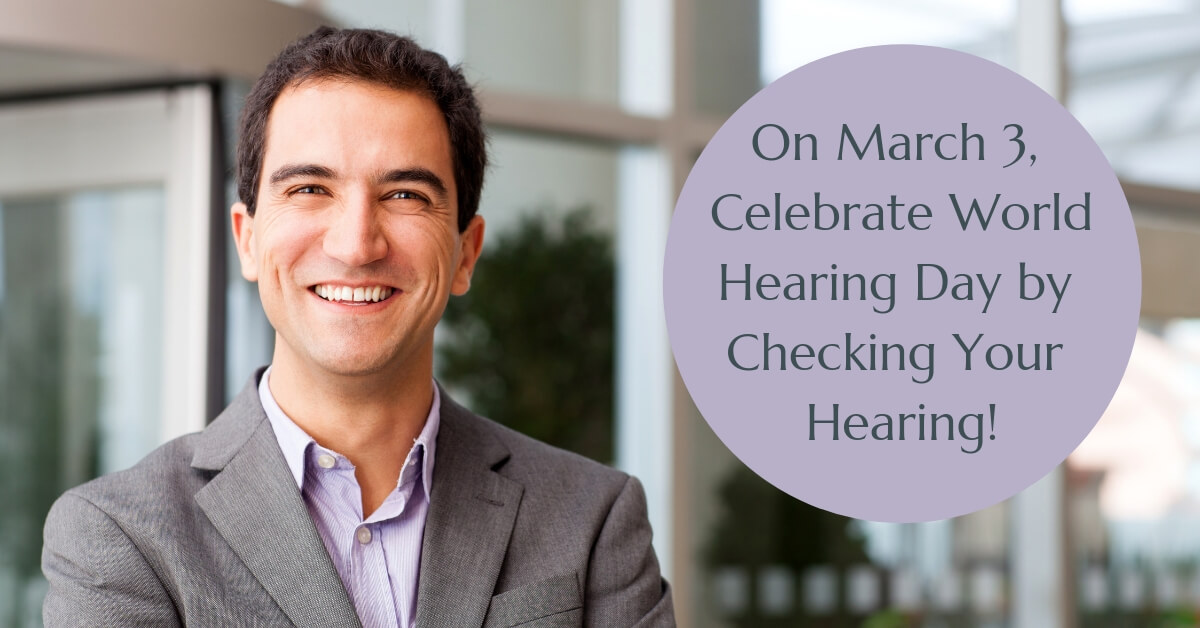
World Hearing Day is fast approaching, and it will be a great opportunity to commemorate the importance of hearing health. The World Health Organization has established that March 3rd is the annual day to celebrate our hearing and to recognize the tragic cost of hearing loss around the world.
With 466 million people around the world living with disabling hearing loss and an estimated 1.1 billion young people at risk of serious hearing loss due to the use of recreational sound amplification, this holiday could not be more important. The cost of hearing loss is devastating, as well. The World Health Organization estimates that hearing loss and the associated health problems cost an annual 750 billion international dollars, not to mention the immeasurable cost on those whose lives are affected directly and their families and loved ones.
The most cost-effective strategies to eliminate these devastating effects of hearing loss include prevention campaigns, hearing tests and early screenings, hearing devices for treatment and rehabilitation, and services for those who have already incurred hearing loss, such as sign language interpretation and captioning. These considerations are among the many ways to celebrate World Hearing Day, and the following specific tips can guide you in your experience.
Childhood Deafness
One of the awareness-raising campaigns the World Health Organization has instituted is to spread the word about the causes and prevention of childhood deafness. Children around the world suffer from hearing loss as well as total deafness due to causes such as communicable disease, problems in childbirth, and other preventable medical situations. Some of the specific causes of infant hearing loss according to the World Health Organization include “infections such as mumps, measles, rubella, meningitis, cytomegalovirus infections, and chronic otitis media, complications at the time of birth, such as birth asphyxia, low birth weight, prematurity, and jaundice, and the use of ototoxic medicines in expecting mothers and babies.” If more resources were diverted to these health problems, children might not have to face a lifetime of hearing loss or deafness. One piece of the puzzle is to raise awareness about these causes of childhood deafness so that mothers and caretakers can stop the problems before they start.
Public Policy Solutions
In addition to raising awareness of the conditions that can cause hearing loss at the individual and family level, the World Health Organization has also urged policy makers to transform the legislative and public health landscape to include preventative and treatment measures. Awareness is an important piece of the puzzle, and helping get the word out about hearing loss can prevent many people from injuring their hearing ability in ways they are not aware.
In addition to raising awareness, policy makers can divert funds to the assistance and treatment of hearing loss, including provision of hearing aids for those who cannot afford them on their own. Captioning and sign language services at public and private events are another way to serve the community of people with hearing loss and deafness, and these services require funding as well as government planning to make sure that they take place. The World Health Organization recommends creating a national strategic plan to face the issue of hearing health rather than hoping that national and regional governments will take action on their own.
Take a Hearing Test with Hearing Aid Associates
In addition to the measures that families, policy makers, and governments can take to prevent hearing loss, what can you do as an individual? The most important and perhaps easiest thing you can do to celebrate World Hearing Day is to get a hearing test for yourself.
You may not think that you have hearing loss, but many of us are working around gaps in our hearing and getting by with deficits in ways we do not even realize. Once you know your baseline hearing ability, you can build on that knowledge to make sure that you are not losing further hearing. If a hearing loss is found, your hearing professional will be able to recommend hearing aids or other lines of treatment and assistance to fill in those gaps, making sure that you aren’t just a statistic measured in next year’s World Health Organization campaign.
To schedule a comprehensive hearing test and to learn more about hearing solutions, contact us at Hearing Aid Associates today!

Virtual Support Groups for People with Hearing Loss
Matthew Favinger, M.S., F-AAA

Understanding the Anatomy of the Ear
Matthew Favinger, M.S., F-AAA

